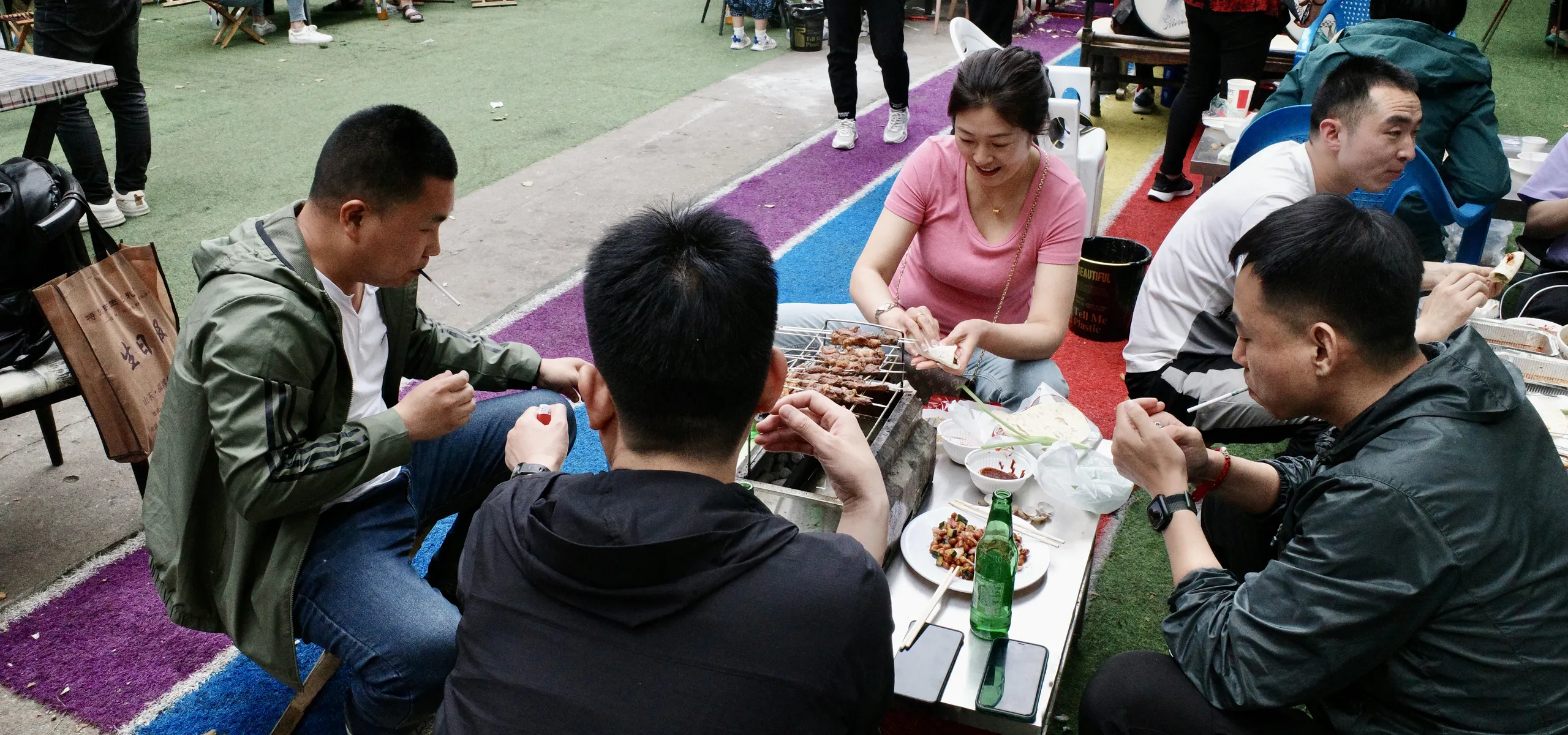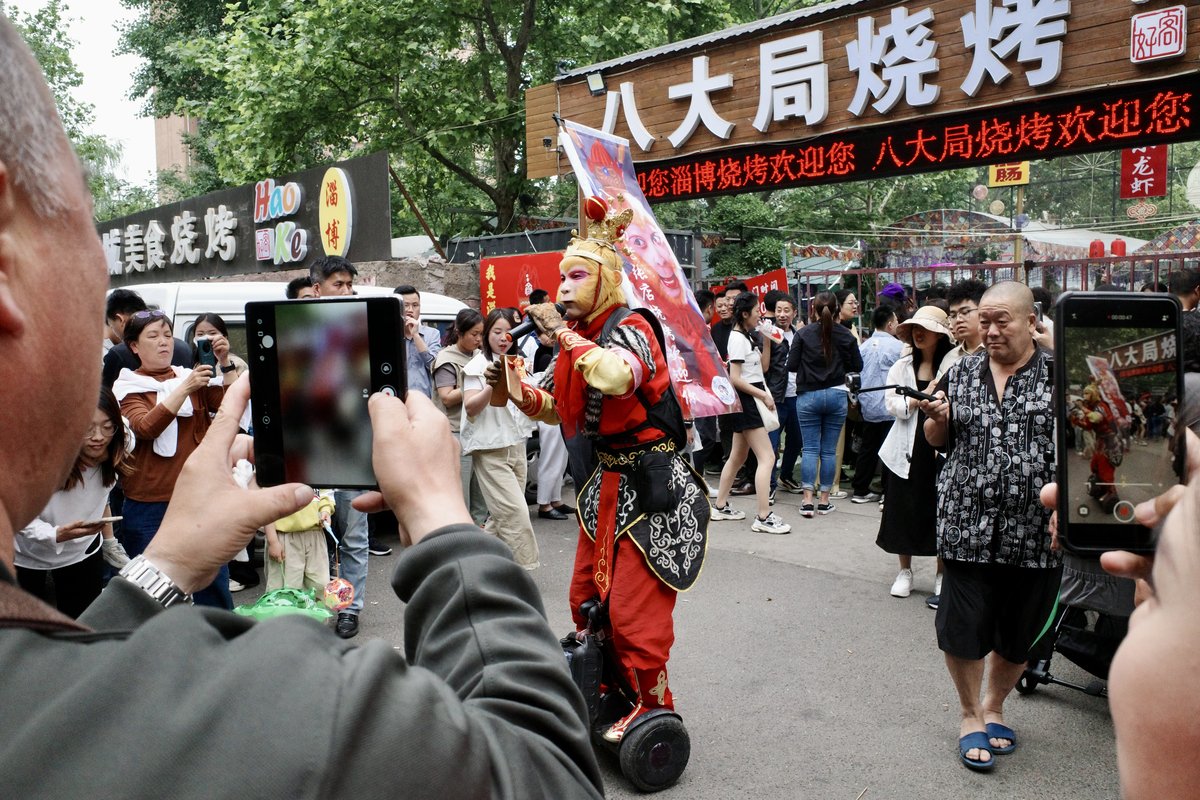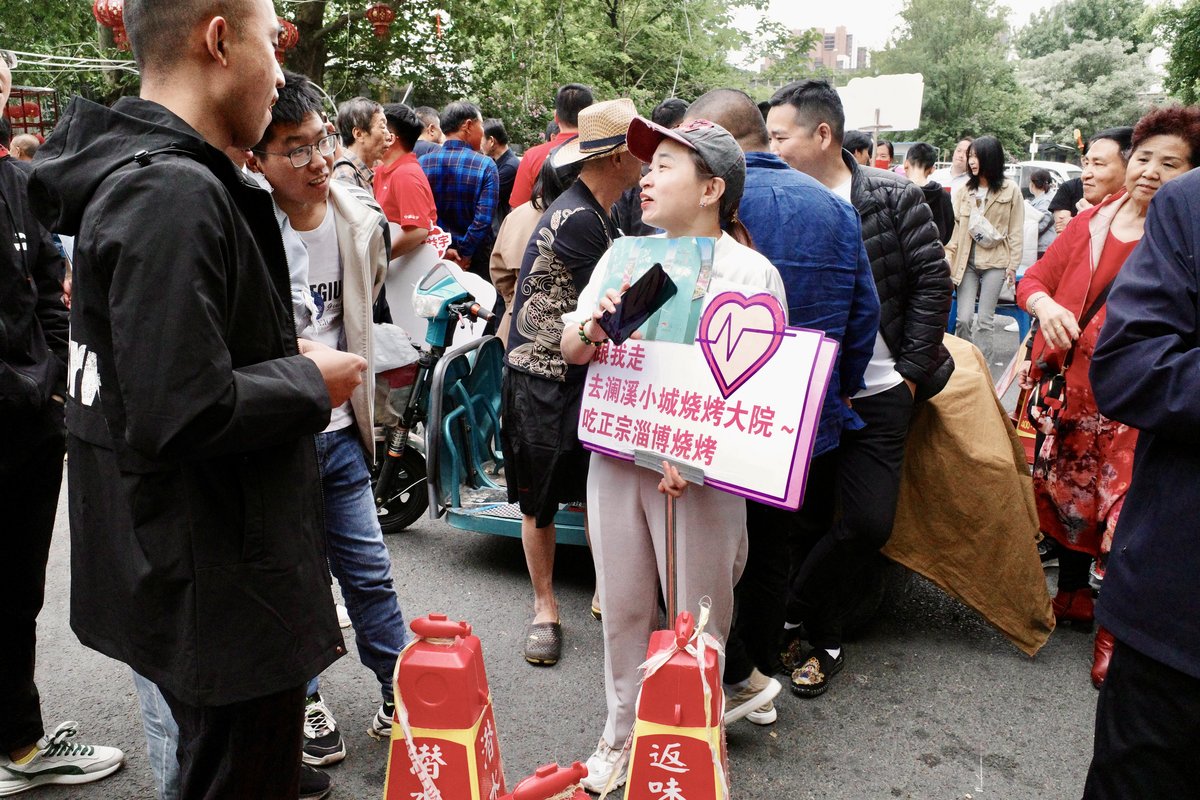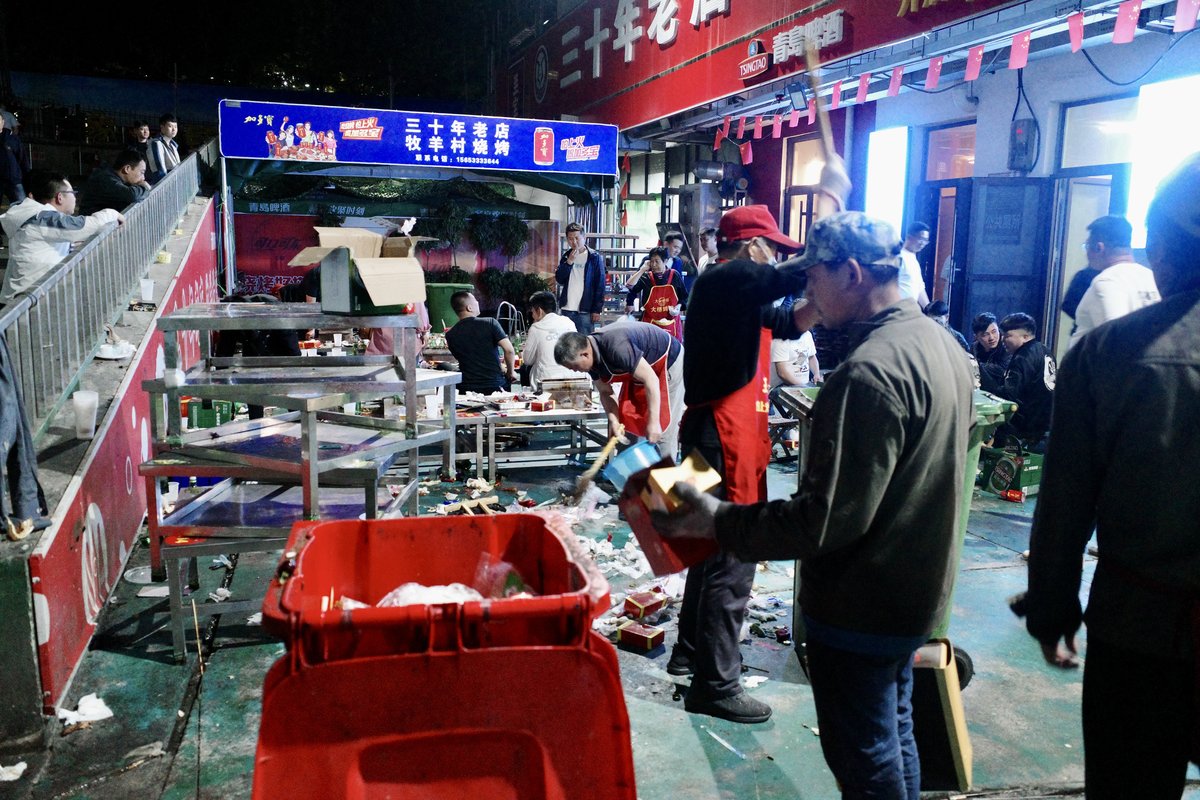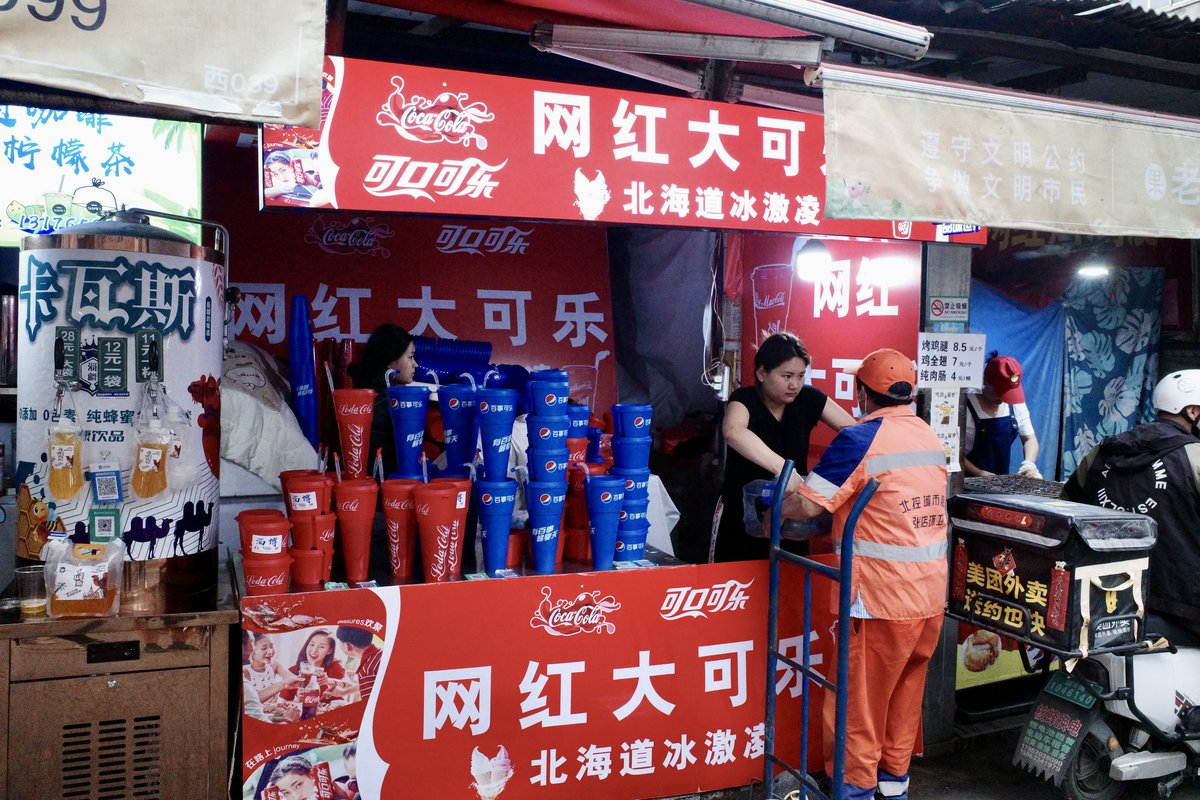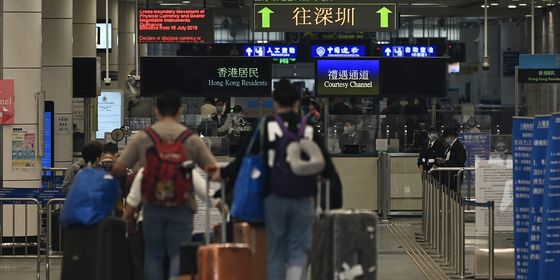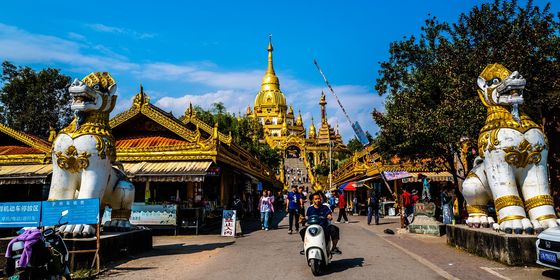An online craze for Zibo’s barbecue has brought a deluge of tourists to the previously unheralded city, but does it change locals’ lives for better or worse?
After waiting for an hour to eat at what is now probably China’s most coveted barbecue hot spot, Shi is disappointed. “This doesn’t taste that good to be honest, definitely not worth all the wait,” the 37-year-old accountant, who only gave his surname, says after a couple of bites, with a hint of disappointment in his voice.
Shi, who works in Beijing, is in Zibo, Shandong province, for business. But he was still sucked in by the online barbecue hype that has turned this once relatively obscure city 430 kilometers south of the capital into a viral tourist destination. Zibo and its barbecue restaurants, particularly around the city’s Badaju area, have blown up on the Chinese internet over the past three months. Photos of tourists crammed around tables and spilling into the street, reveling at all hours of the day, are now everywhere on social media. The hashtag “Zibo barbecue” has over 900 million views on Weibo at the time of writing.
To outsiders who have followed the astounding social media craze, the poor taste reported by Shi may be a surprise, but it isn’t to many locals: “People don’t come here for the barbecue, they come here for the spectacle,” a young taxi driver surnamed Liu tells TWOC. This trend has boosted local tourism to unprecedented levels in recent weeks, but not everyone benefits, with some locals seriously doubting the sustainability of tourism in Zibo, and worried about the changes their city has already undergone in response to the influx of visitors.
The city of 4.7 million, an industrial hub where chemical processing and light manufacturing make up important parts of the economy, attracted 4.8 million tourists in March alone (a 134 percent increase year-on-year). “Zibo wasn’t really a tourist destination before,” says Liu, “and when people ask me how on earth it suddenly took off at the beginning of March, I never really know what to say. There are different theories floating around.”
Some credit the Chinese singer and influencer Xue Zhiqian, born in 1983, with laying the groundwork after performing in Zibo during the Covid-19 pandemic. Then there is The Story of Chuaner (《人生一串》), an online documentary series about barbecue with a much-watched episode from late 2021 showcasing the grilled meat with spring onions wrapped in bread that Zibo is famous for. Others point to the story that a cohort of university students who were quarantined in Zibo and pledged to return to the city to celebrate together after the pandemic, jump-starting the travel hype through the power of social media two months ago.
Whatever the cause of Zibo’s virality, the local government and businesses have quickly realized the economic potential. “Zibo’s [economy]...needs some structural change to survive. The government saw this opportunity and quickly jumped on it,” explains a local university student surnamed Kang who has lived in Zibo for two years. For the Labor Day holiday, which took place from April 29 to May 3 this year, the city government organized a massive outdoor barbecue festival catering to hundreds of thousands of tourists, with a massive stage and performances throughout the holiday.
The week after Labor Day, Zibo isn’t as packed with visitors, but the travel craze seems far from over and the city has adapted to its new-found fame. Buses take tourists from the train station straight to the city’s barbecue hot spots, providing a seemingly endless stream of customers for places like Muyangcun, a local barbecue chain that’s been around for three decades, with its main restaurant now being the epicenter for Zibo’s barbecue boom.
The chain has always been popular with locals, but now just getting a table is a challenge. The restaurant hands out table numbers at 10 a.m. each day, with 100 spaces for lunch and 150 for dinner, which starts at 4:30 p.m. “People start [queuing] at 3 a.m. and wait until 10 a.m. when they start handing out the numbers,” says Wang Baosen, from Weifang, another Shandong city, as he leans on his car across the entrance from Muyangcun. It’s 1 a.m. and Wang is setting up his stall selling watermelons in front of the gate where, in two hours’ time, people will start showing up to get a table number.
Wang is one of the many deft entrepreneurs trying their luck on the sidelines of the barbecue craze. He’s come with a friend to hawk his fruit: “We thought we might as well take a car-load here and try to make some money,” Wang says, pointing at the trunk stuffed with watermelons behind him. “Business is alright, but we ended up blowing all the money we earned on food and accommodation ourselves,” explains Wang’s friend with a laugh. “The hotels are all booked to the brim, we found a nearby private guest room to rest a bit, but at 150 yuan for 6 hours it’s not cheap.”
Hotels enjoyed a surge in bookings during the Labor Day celebrations. At one hotel in the suburban district of Linzi, a 20 kilometer drive from the city’s popular barbecue hubs, all rooms were occupied during the holiday, the manager tells TWOC. To combat price-gouging, the government prohibited hotels from raising their prices beyond 50 percent, but privately sublet rooms seem to be beyond government control.
The tourists keep coming, Wang explains, despite the queues and potentially disappointing dining experience. “We keep telling [tourists] to go somewhere else; the barbecue tastes the same everywhere anyway. But this one couple from Beijing, for example, said they felt they would miss out if they didn’t eat at Muyangcun now that they’re here,” he says, trying to explain why people are willing to wait in line for hours.
Some have capitalized on the queues. “I charge...30 yuan for every hour in line for a number and the same hourly fee for blocking the table before people start arriving,” explains a local man sitting, cigarette in hand, at one of the coveted tables outside Muyangcun as he swipes through mobile app UU Paotui to sell his queuing services.
The streets around the Badaju barbecue area have also changed. The alleys of what used to be a nearby vegetable market frequented by locals are now swarming with young tourists. Sellers have adapted to the new clientele: one shopkeeper shows off her stall selling liters of cola in giant blue and red plastic cups for visitors to take selfies with. At another shop selling local snacks, around two dozen mostly female tourists armed with selfie sticks and gimbals are gathered: “They’re waiting for the shopkeeper to come out, he’s quite handsome and has become something of an internet celebrity,” explains one bystander.
Some hawkers carry large signs advertising other nearby barbecue businesses. “Scan the QR code and get in the WeChat group, it’s just 1.5 kilometers down the street, someone will come and pick you up for free,” says one man advertising his business on the street. There are close to 200 people in the group, with the location of the restaurant and video clips of people eating being shared every few minutes. “Barbecue restaurants have started popping up everywhere. Some people who may have been in the meat or vegetable business now all try to get into barbecue,” explains Kang, the university student.
Despite myriad business opportunities, some locals voice doubts about the trend. “Some people are benefiting for sure, the factories manufacturing the grills, those supplying the meat or the bread wraps, or the hotels of course, but most locals aren’t really getting much out of it I reckon,” says a 46-year-old Zibo-native surnamed Xia. “Badaju is a great example, it used to be a food market where grandmas bought vegetables for cheap, but now that’s disappearing and it’s all tourists and influencers taking pictures, it’s really quite remarkable,” he tells TWOC.
Recently released official numbers show that in the first quarter of 2023, consumption in Zibo has gone up, with an 8.3 percent increase in total sales of consumer goods year-on-year. The service sector saw the fastest growth at 4.7 percent. But these economic benefits may come at a cost: “There are quite a few inconveniences actually, the traffic has gotten worse, some prices for food have gone up, the queues everywhere…” says Xia.
In a widely shared, now-deleted, short essay published on WeChat on April 17, Chinese academic and former Science and Technology Daily chief editor Liu Yadong further criticized the Zibo phenomenon as the result of Chinese society becoming a “social wasteland” devoid of any real value, with one short-lived social media frenzy after another diverting attention away from more important social issues. But though some netizens agreed with his points, others mocked him for his lofty views detached from the lived reality of young Chinese who long for entertainment after three years of strict Covid-19 prevention measures.
Either way, it’s not clear whether Zibo can maintain its viral fame and keep the tourists flowing. Shi believes that as long as it retains some of its rough edge, the city may continue to draw visitors: “People come here for something that’s disappearing quickly from other cities: eating cheap food and enjoying themselves out on the street late into the night, it has become this sort of worry-free bubble.”
“Whatever happens, I’m hoping people will come here not just to post about it online, but for the city, and that can make tourism more sustainable in the long term,” says taxi driver Liu, before heading back to the train station to haul the next tourist to another barbecue restaurant.





